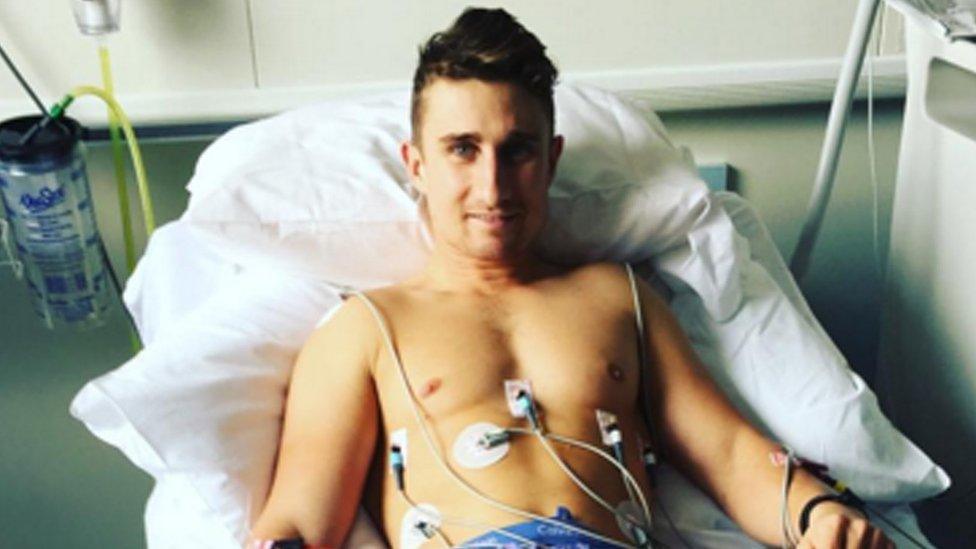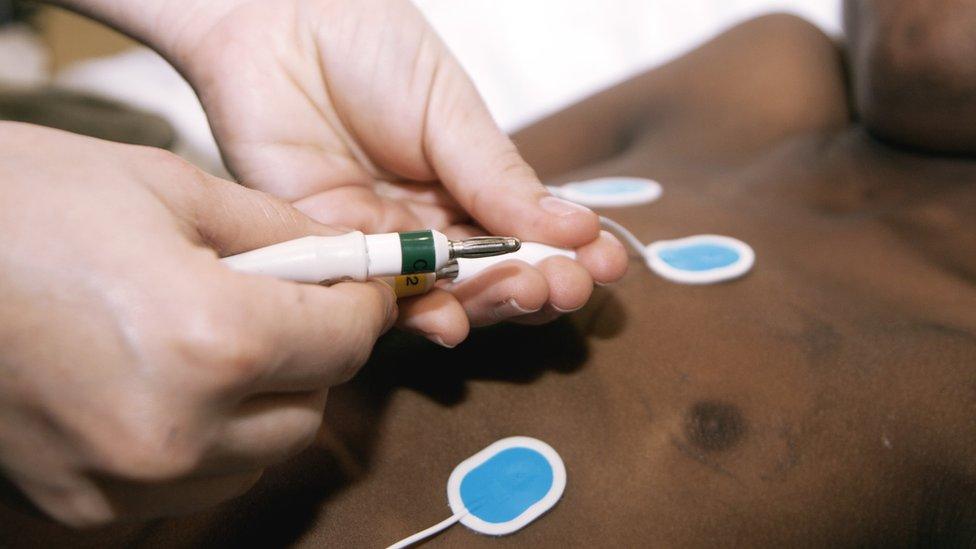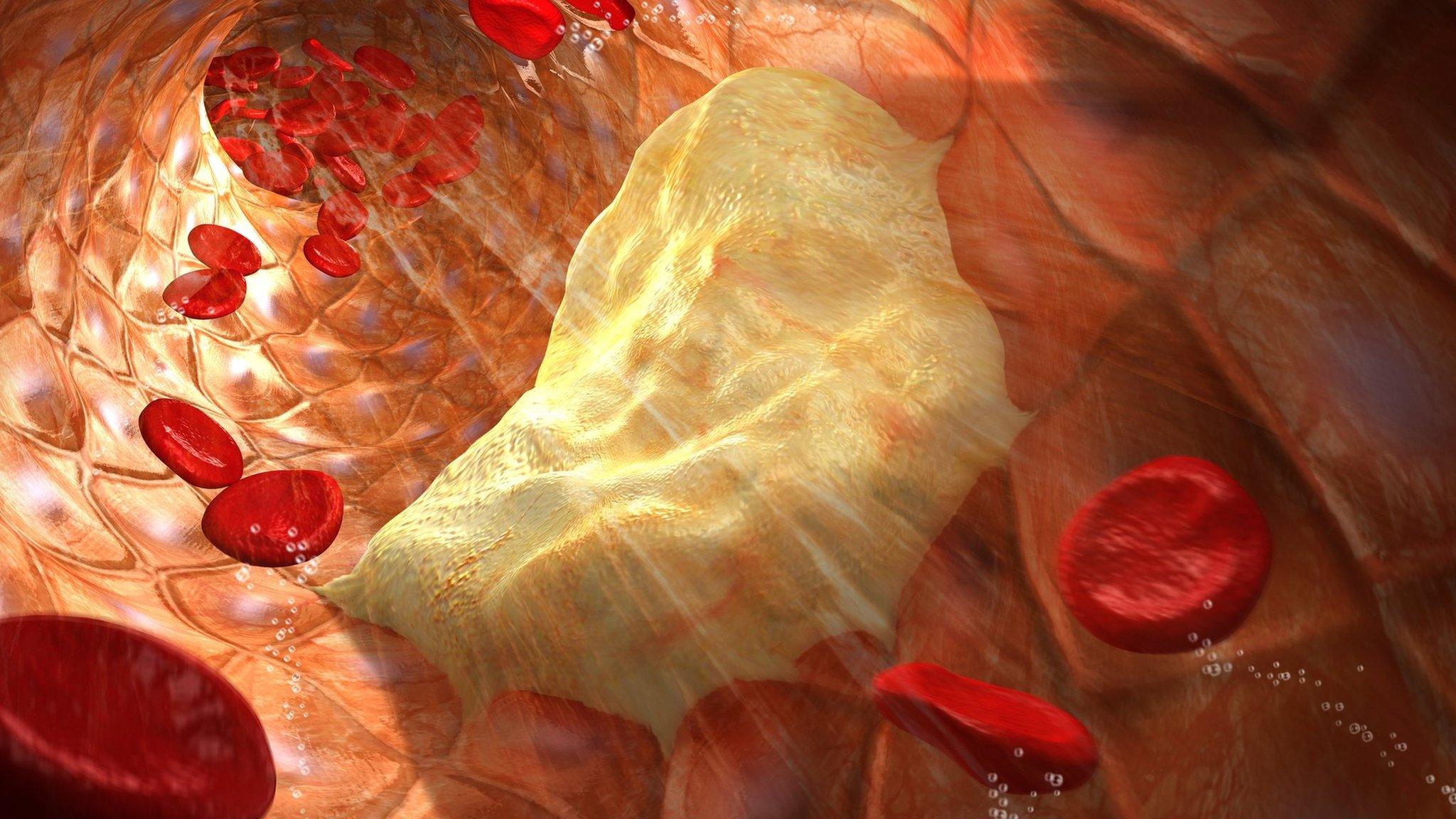Sudden death warning over faulty heart gene
- Published
- comments
An estimated 620,000 people in the UK have a faulty gene that puts them at risk of developing coronary heart disease or sudden death, and most are unaware, a charity has warned.
The British Heart Foundation said the figure was 100,000 more than had been thought and could be even higher.
It said there was now a better grasp of the prevalence of inherited conditions.
A child of someone with an inherited heart condition can have a 50% chance of inheriting it themselves.
The charity warned that the overall figure for those with the faulty gene could be much higher because of as yet undiscovered faulty genes and under-diagnoses.
Each week in the UK, around 12 seemingly healthy people aged 35 or under are victims of sudden cardiac death with no explanation, largely due to undiagnosed heart conditions.

'I should have died'

Cricketer James Taylor retired in 2016 after he was diagnosed with a serious heart condition
Former England and Nottinghamshire cricketer James Taylor had to retire last year, at the age of 26, after he was diagnosed with the serious heart condition arrhythmogenic right ventricular cardiomyopathy.
He told BBC Radio Four's Today programme that he had been warming up for the first game of the season in Cambridge when his heart started "going mental in my chest".
He said: "You could see my shirt moving, that's how hard my heart was beating inside my chest...
"I went off, I had some oxygen, then I went to hospital some hours later.
"When I walked in to hospital they said it was a miracle I was able to walk in.
"My heart rate was going at 265 beats per minute."
Former England cricketer James Taylor tells Today he "should have died" from heart condition
A normal resting heart rate is 60 to 100 beats a minute, but Taylor's remained at 265 for six to seven hours - "the equivalent of doing five, six marathons."
He now treats the condition with medication and said he was fortunate to survive.
"I'm still alive. I should have died - that's the scary thing about these inherited heart conditions.
"A lot of people don't get the opportunities I had and it's often too late."

Research has helped to discover many of the faulty genes that cause inherited heart conditions.
This has led to the development of structured genetic testing services for those at highest risk for some of these conditions.
However, the British Heart Foundation says more research is urgently needed.

Inherited heart conditions: What you need to know
Many people with an inherited heart condition have no symptoms, but some can develop some warning signs including dizzy spells, palpitations and blackouts
Screening and genetic testing can help identify problems
Doctors will suggest you be tested if a family member has been diagnosed with an inherited heart condition, there is a family history of premature deaths or you have been diagnosed with angina or had a heart attack at a young age
If you are diagnosed with an inherited heart condition, monitoring and treatment can reduce the risk of a sudden heart attack or cardiac arrest
Speak to your GP if you are concerned

Prof Sir Nilesh Samani, BHF medical director, said: "The reality is that there are hundreds of thousands of people across the UK who are unaware that they could be at risk of sudden death.
"If undetected and untreated, inherited heart conditions can be deadly and they continue to devastate families, often by taking away loved ones without warning.
"We urgently need to fund more research to better understand these heart conditions, make more discoveries, develop new treatments and save more lives."
- Published1 February 2017

- Published27 October 2016

- Published28 May 2014

- Published20 August 2014

- Published12 May 2014

- Published12 May 2014
